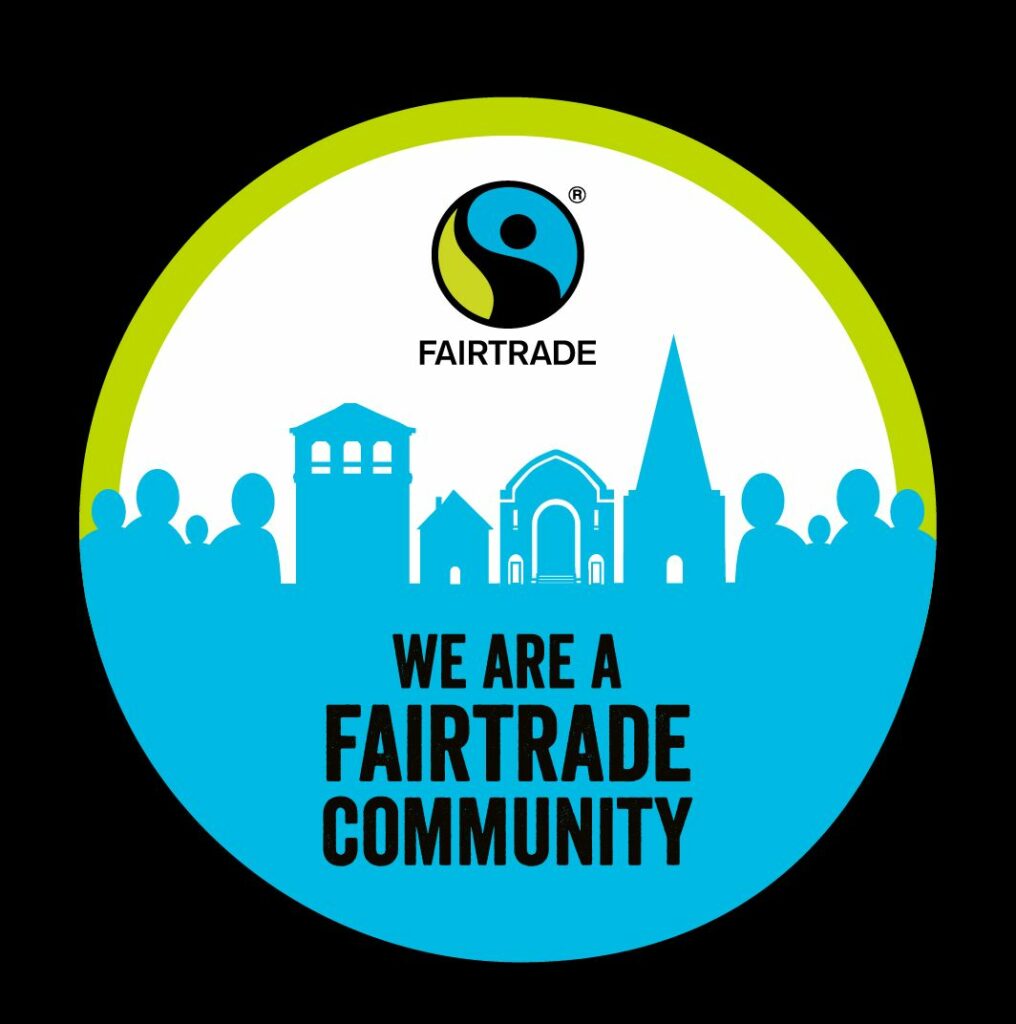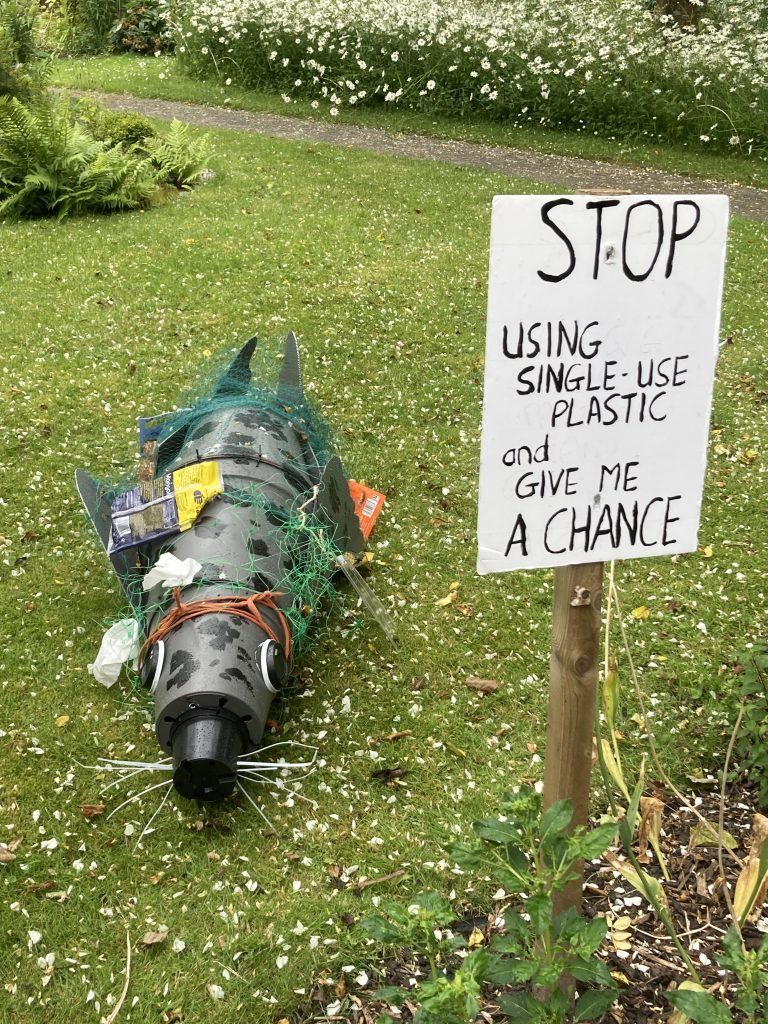Think Global
Global supply chains can make us vulnerable to food shortages. Worldwide, over half our calories come from just three crops: wheat, rice and corn. Drought, flooding and other climate events threaten our food security by destroying the crops we rely on.
Other problems with the global food system include food miles, waste food, massive use of pesticides, herbicides and plastic packaging.
Act Local
North Craven is a food producing area, but much of the food we eat comes from all over the planet. Shopping in supermarkets is cheaper and many of us cannot afford to buy food that is produced in our local area. At the same time farmers in North Craven struggle to get a fair price for the food they produce.
Our food needs to be local, sustainably grown, seasonal and healthy. We should be producing food using systems that are peat and pesticide free, support biodiversity and create fertile soil.
Get Involved
ACE Food Group campaign to reduce food waste, encourage grow-your-own and buying local food. We support making locally-produced food more affordable, using taxes to rebalance prices in ways which are fairer to farmers and consumers.
We support initiatives by individuals, allotment holders and community groups to grow their own food sustainably by using open-pollinated seeds, peat alternatives and no pesticides/herbicides.
- UK households throw away around 96 billion pieces of plastic annually. Find out how to reduce your plastic use with this guide from The Big Plastic Count Last year’s count took place for a week, 11th-17th March – you can see the outcome of the count here.
- ACE’s Food Group supported the campaign for Settle to become a Plastic Free Community which received accreditation from Surfers Against Sewage on 19th February. Congratulations to Wholesome Bee health store who have successfully been accredited as Plastic Free. We hope more businesses will sign up soon and if you can get involved please contact Rosie Sanderson (rosiesanderson19@gmail.com).
- Check out ways to become more plastic free with these suggestions: ‘Every Day Plastic: 52 Ways to Reduce Your Plastic’ and read about why ‘We Need to Change our Relationship with Plastic’, but beware that some organised events/gatherings have been using Vegware products as a recyclable alternative to using crockery and washing up afterwards. However, Vegware needs commercial composting and is a contaminant in household recycling.
- At last year’s Settle Flowerpot Festival we highlighted the impact of plastic and marine waste on sea-life with our flowerpot seal located in the Quaker Meeting House garden on Kirkgate – see below.
- Settle is now a Fairtrade Community – see ‘food news and updates’ below. Settle will be a key stop in the new ‘Fairtrade Way’ that will run from Bradford through the Aire and Ribble valleys up to Garstang and Lancaster.
- North Yorkshire Council’s (NYC) ‘Let’s Talk Food‘ survey took place in Spring 2024, with over 2000 people telling NYC of their experiences of accessing healthy food and what food you waste. The results will be used to help shape a food action plan supporting accessible, sustainable and nutritious food across the county.
- Grow greener: ask Settle Food Group to talk to your local gardening club on gardening for wildlife, composting, and rainwater capture.
- Find out how to change our broken farming system at the Northern Real Farming Conference in November 2023.
- Read Food, Farming & Climate Change by David Howlett, exploring how Craven can respond to the challenges of climate change.
Food news and updates

We’ve done it!
In June 2023 Settle was awarded Fairtrade Status and is now officially a Fairtrade Community, joining Skipton, Embsay with Eastby, Leeds, Harrogate and Bradford. Fairtrade status means that the community is engaged in promoting ethically sourced products.
When you see the FAIRTRADE mark on any product, you can be sure that the farmers who produced it are guaranteed a fair price for their crop which covers production costs. They also receive a premium that they can invest in projects to benefit their communities, such as education and health care. The farmers earn enough to look after their families properly and plan for the future. The Fairtrade mark can now be found on over 3000 products from more than 200 companies.
Our Food Group are running regular fairtrade related events. Keep an eye on our events page for details of our next or or contact the group by email: acesettleandarea@gmail.com

Settle Flowerpot Festival – our entry, above, highlighting the issue of plastic contamination and its impact on our marine life.
Seed swaps: Many places are now running seed swaps with locally produced seeds. Our Food group lead, Melanie, also brings seeds to ACE events.
Fairtrade: You can now buy Fairtrade tea, coffee and chocolate at many UK churches and Oxfam shops. Guylian (of seashell fame) now use 100% Fairtrade cocoa, which means a fairer deal for farming communities in West Africa. Preston-based Beeches Chocolates have brought out some Fairtrade treats. Quirky Chocolates have a new range of gift sets using Fairtrade cocoa.
Buy direct: You can buy citrus fruit direct from organic farmers in Europe, giving them a better price for their produce. For what’s in season at the moment, check out crowdfarming.
Use these NHS food groups to guide what you eat:
GROUP ONE – BASIC WHOLEFOODS
Vegetables
Fruit
Nuts
Eggs
Meat
Milk
Rice and Grains
These foods are classed as unprocessed and have nothing added to them.
GROUP TWO – PROCESSED CULINARY INGREDIENTS
These are foods that add flavour:
Olive Oil
Salt
Pepper
Dried Herbs
Does include white sugar and honey
GROUP THREE – PROCESSED FOODS
(Made up of 2 – 4 ingredients, usually made by combining foods in Groups 1 and 2).
May be more convenient such as tinned fish, plain yoghurt, ham/bacon and sourdough bread.
GROUP FOUR – ULTRA PROCESSED FOODS
Industrial formulation of 5 or more ingredients such as:
Sweet and Savour packaged snacks/chocolate
Crisps
Ice-Cream
Biscuits
Cakes
Ready Meals
Cooking Sauces
Fizzy Drinks
Cordials
